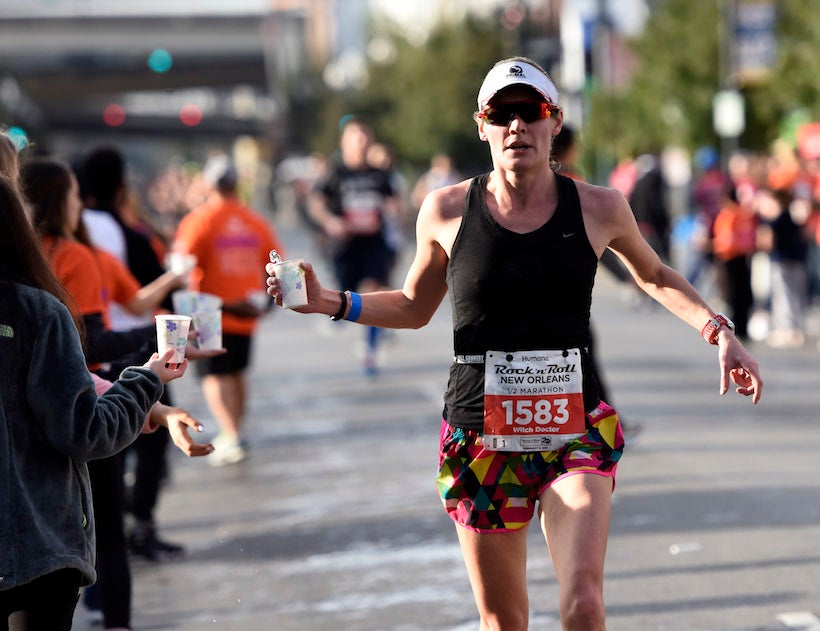Maximize Your Race Day Performance: A Comprehensive Guide to Pre-Race Nutrition
Preparing for a race involves much more than just training; nutrition plays a critical role in ensuring you perform at your best. Many runners have established pre-race rituals, but it’s essential to tailor these based on race distance. This guide provides detailed nutrition and hydration recommendations for various race lengths, ensuring you optimize your energy levels and hydration on race day.
Understanding the Importance of Proper Nutrition
Proper nutrition before a race can significantly affect your performance. From ensuring that glycogen stores are topped off to maintaining adequate hydration, what you eat and drink can greatly influence your race outcome. Hydration should not be overlooked; being well-hydrated is crucial regardless of the distance you’re tackling. The following sections break down nutritional strategies from 5K races up to marathons.
5K Races: Quick and Efficient Nutrition
For a 5K, aim for a light yet carbohydrate-dense breakfast about 1–2 hours before starting your race. A recommended option includes 1 cup of low-fiber cereal accompanied by almond milk and half a banana, totaling around 200 calories. To stay hydrated, drink 8–12 ounces of water approximately 60–90 minutes prior to the race. For those favoring a quick energy boost, a small snack like half a gel may suffice just before the race starts.
Nourishing for a 10K Challenge
As the race distance increases to 10K, so should your pre-race nutrition. Consume a more substantial breakfast comprising 250–350 calories, such as 1–2 packets of instant oatmeal with milk and a banana. Hydrate with 12–16 ounces of water about 2–3 hours before the race. Consider a small serving of a sports drink 10 minutes prior for an energy boost, particularly if you anticipate racing for more than an hour. During the race, maintain hydration by drinking 4–6 ounces every 2 miles, especially in warmer conditions.
Half Marathons: Balancing Carbs and Protein
For half marathons, your pre-race meal becomes even more critical. A breakfast of around 400–500 calories is advisable, focusing on both carbohydrates and protein. Consider half a bagel with peanut butter and jelly, complemented by a banana, 2-4 hours before the race. Meanwhile, hydrate with 12–16 ounces of fluid, incorporating sports drinks for added carbohydrates if desired. During the race, consume 30–60 grams of carbohydrates per hour after the first hour, which might include energy gels or sports drinks.
Mastering Marathon Nutrition: A Dual-Focus Approach
In preparation for a marathon, race-day nutrition must be meticulously planned. Aim to consume a total of 600–700 calories in two parts: a hearty meal 4 hours prior, with options such as a whole bagel with peanut butter or scrambled eggs, followed by oatmeal or an energy bar 1.5 hours before the race. Hydration should consist of 12–16 ounces of fluid 3 hours before and another 7–12 ounces an hour prior. During the marathon, be ready to consume an impressive 60–90 grams of carbohydrates per hour using sports drinks, gels, or energy chews. This level of intake will help sustain your energy for the considerable duration of the race.
Evaluating Your Unique Needs and Adjustments
There’s no one-size-fits-all approach to race-day nutrition, and what works for one person may not suit another. It’s vital to practice your fueling strategy during training runs to discover what best suits your digestive system and performance needs. Adjustments may also be necessary based on weather conditions, personal preferences, and evolving energy requirements as you gain experience on the racecourse.
Conclusion: Fueling for Success
Nutrition plays an undeniable role in how well you perform across various race distances. By personalizing your race-day nutrition strategy—as outlined in this guide—you’ll be well-equipped to tackle any challenge and achieve your running goals. For further insights and support on race nutrition and health, consider exploring resources like Nutrition Energy.
